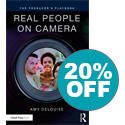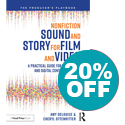How Colleges Market Themselves…or Don’t
 After 5 college tours in 3 days, I can tell you a lot about the best and worst of college marketing. We took our oldest on his first round of tours, and as a video and multimedia producer, I was particularly intrigued by the use (or lack) of audio-visual storytelling. One school got high marks for its all-visuals slide show supporting a dynamic speaker. He knew his material well, had gone to the school himself, and delivered lots of insightful anecdotes. He gave us some stats, too, but understood that those are easily found on websites and print materials, so he focused on painting a vivid picture of the undergraduate student experience.
After 5 college tours in 3 days, I can tell you a lot about the best and worst of college marketing. We took our oldest on his first round of tours, and as a video and multimedia producer, I was particularly intrigued by the use (or lack) of audio-visual storytelling. One school got high marks for its all-visuals slide show supporting a dynamic speaker. He knew his material well, had gone to the school himself, and delivered lots of insightful anecdotes. He gave us some stats, too, but understood that those are easily found on websites and print materials, so he focused on painting a vivid picture of the undergraduate student experience.
At another elite school—which shall remain nameless—the presentation couldn’t have been more different. The speaker said “uh” every other word. He held on a single slide for more than 3 minutes at a time–deadly! And each slide contained text in a poor layout so that while it was very large, it was still hard to read. Of the two videos he showed, one was a fun “trying to be viral” piece focused entirely on one athlete in one very popular (nationally recognized team) sport. It was cute. But the fact that it was 50% of the content shown conveyed the message that this particular team is central to the college culture, and maybe that was the intent. The other video we saw was supposed to be more all-encompassing about the university, but clearly had no script other than “get a bunch of students to talk to the camera and edit it all together as quickly as you can.” This video was filled with poor quality shots–blown out lighting, sound you couldn’t hear– along with a terrible “corporate” repetitive music bed that made it hard to follow. The editing was poor quality, too, and a last freeze frame was on the wrong field, resulting in a weird blur on a student’s face. What this show conveyed was “we’re such a great place that we don’t really have to invest in this video because you’ll probably want to come here anyway.” Mission accomplished.
The school that impressed my son the most likely did so in part because of its emotional, effective and high quality admissions video:
The #Elon video is effective for many reasons—I won’t bore you with a film lecture—but one of them is the original music being performed by students and the thoughtful edit sequences and camera setups. This is not just a mash-up blizzard of images of the school, but a story well told, and it had its intended effect on one prospective applicant. What it told his mom is this: we respect the story enough to approach filmmaking (and its various crafts of writing, directing, editing, music composition, etc.) with creativity and professionalism, just like any other academic discipline.
A school we didn’t see, but might on our next jog north, could be University of Rochester, which took a very different but equally compelling approach to an original music composition, with this well-made admissions rap video:
My take away from this experience is this: if you are marketing yourself, whether to prospective students, customers or donors, how you tell your story matters. A well-planned and executed project—whether a speech with slides, a rap video or a documentary-style piece—will convey your passion. A poor one undermines your message.





Having just navigated this process with Sammy, I was struck by the differences among schools too. Best marketing we saw was probably Dickinson and Ithica College. For the later, having a broadcasting school likely gave them an edge and their video made the standard admissions pitch almost bearable. The worst were selective admissions schools in New England that apparently believed that their reputation was so great, students would apply and parents would pay regardless.